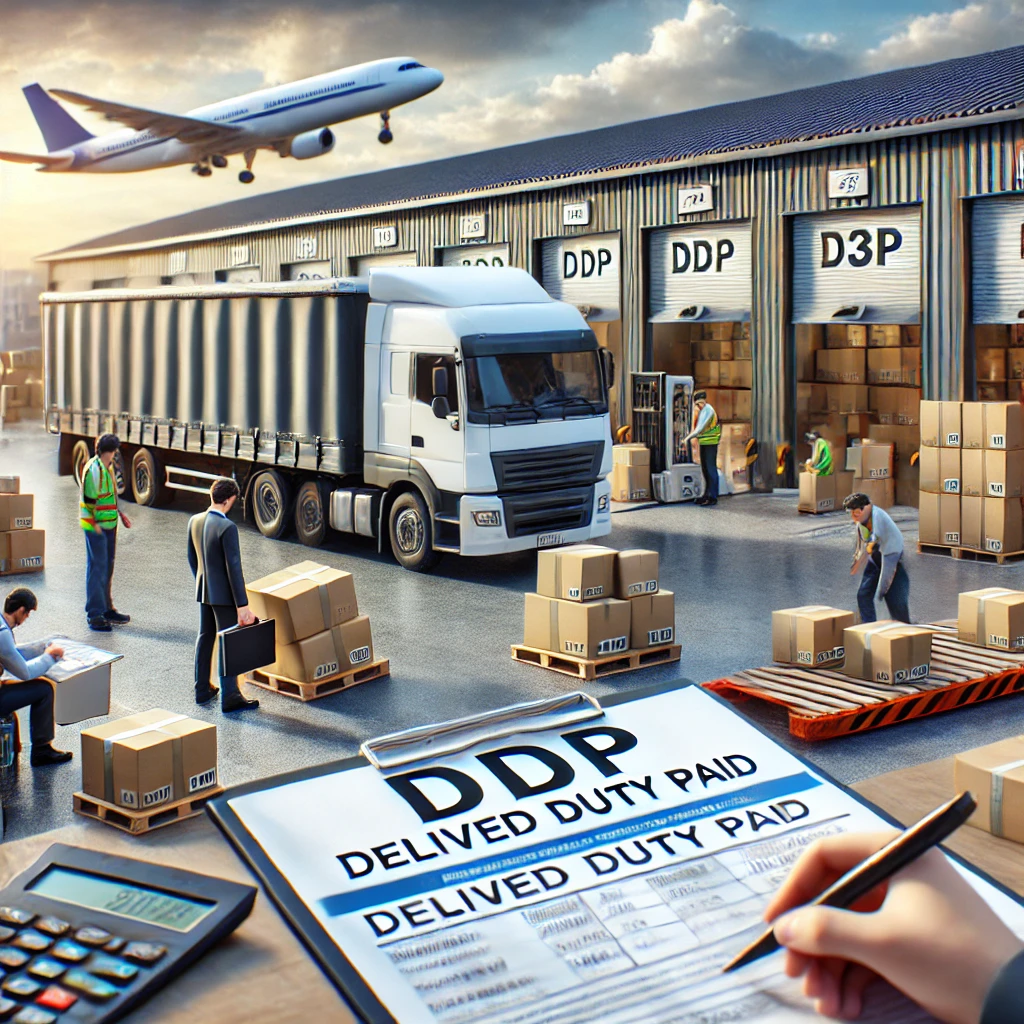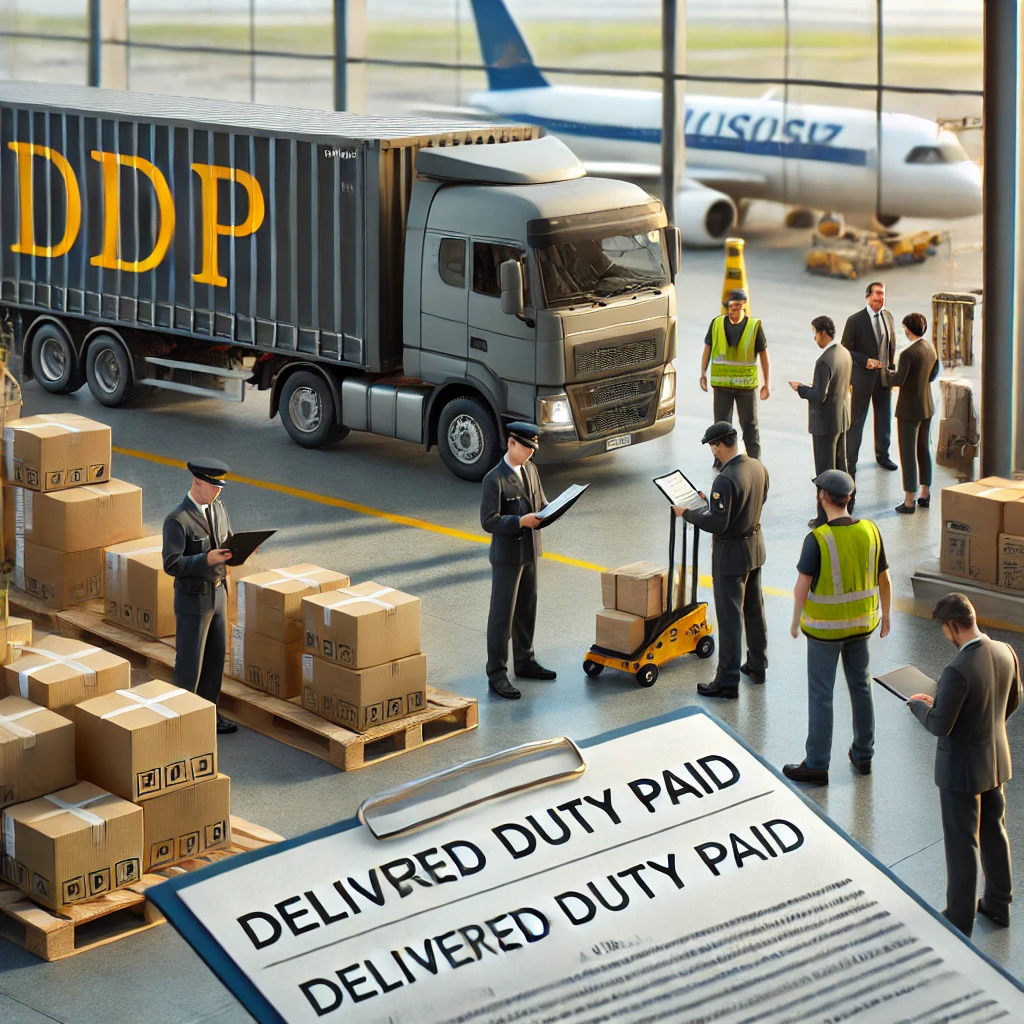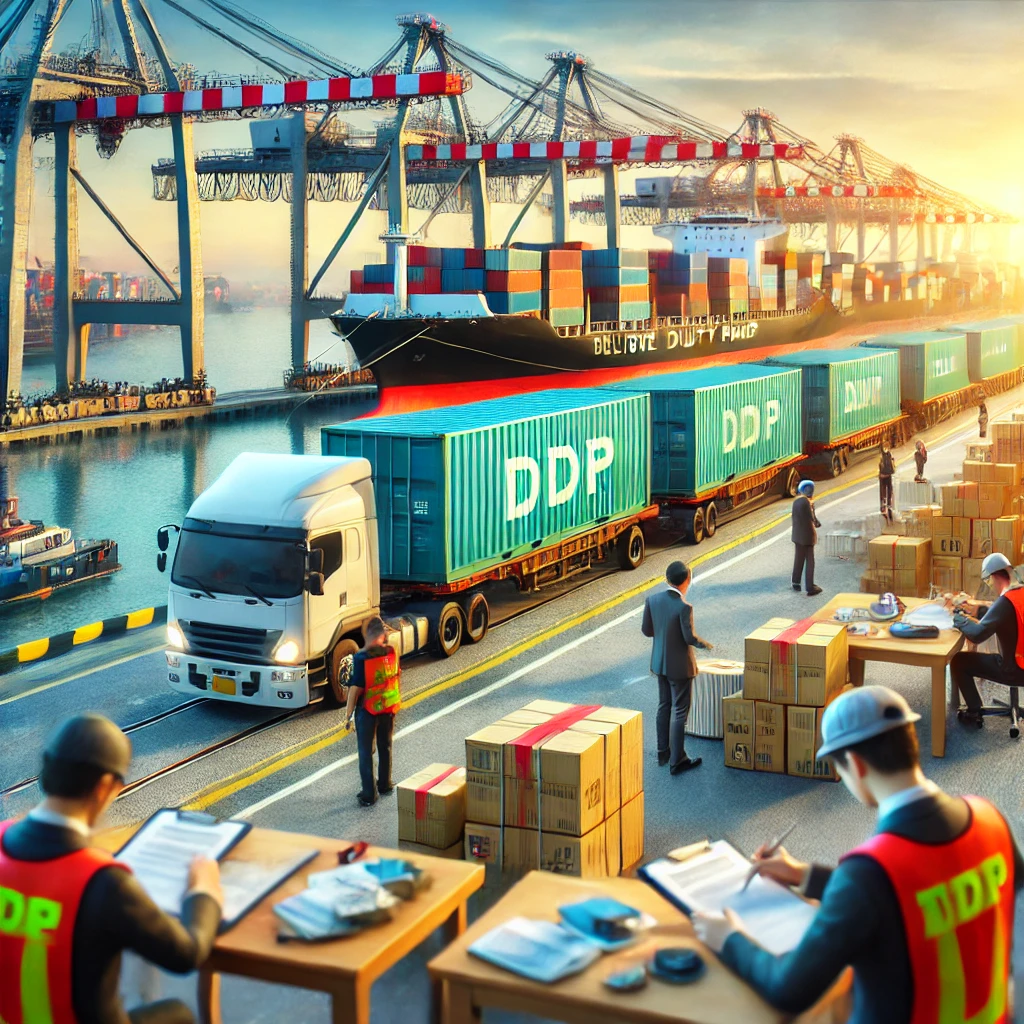What Is DDP Delivery Terms and Why Does It Matter?
But what exactly does DDP mean, and how does it impact shipping, costs, and risk allocation? 🚢📦
In this guide, we’ll break down DDP delivery terms, including its key features, responsibilities of both parties, advantages, disadvantages, and comparisons with other Incoterms.

What Does DDP ddp delivery terms (Delivered Duty Paid) Mean?
DDP (Delivered Duty Paid) is an Incoterm where the seller is responsible for delivering the goods to an agreed-upon location, covering all costs, including:
✔ Transportation 🚛
✔ Insurance 🔒
✔ Import duties & taxes 💰
✔ Customs clearance 🚢
The buyer only needs to receive the goods, as the seller manages everything until final delivery. The key aspect is that the seller assumes all risks and responsibilities, making DDP one of the most buyer-friendly Incoterms.
📌 Key Aspects of DDP delivery terms:
- Seller arranges & pays for transportation, insurance, and customs duties.
- Risk remains with the seller until goods arrive at the agreed place.
- Applies to all transport modes (sea, air, road, rail).
- Buyer is not responsible for import duties or clearance.
💡 Example:
A seller in Germany ships goods to a buyer in Brazil under DDP São Paulo. The seller handles everything—shipping, insurance, and customs. The buyer only needs to unload and receive the goods.
Key Features of DDP Delivery Terms
✅ Seller’s Responsibilities in DDP delivery terms
✔ Exports the goods & arranges packaging.
✔ Handles export & import clearance and documentation.
✔ Covers all transportation & insurance costs.
✔ Pays import duties & taxes in the buyer’s country.
✔ Delivers goods to the buyer’s final destination.
✅ Buyer’s Responsibilities in DDP
✔ Receives the goods at the final destination.
✔ Handles unloading costs (if not covered by the seller).
✔ No responsibility for customs duties or taxes.
✅ When to Use DDP?
✔ Ideal for first-time importers or buyers unfamiliar with customs procedures.
✔ Best for high-value shipments where buyers want a predictable landed cost.
✔ Useful for businesses that want to simplify logistics and avoid dealing with customs.

Advantages & Disadvantages of DDP
📈 Advantages for the Buyer
✔ Hassle-Free Import – No customs worries.
✔ Predictable Costs – All duties & taxes are included.
✔ Minimal Logistics Involvement – The seller manages everything.
📉 Disadvantages for the Buyer
❌ Higher Price – The seller includes all costs in the price.
❌ Limited Control – The buyer cannot choose the carrier or logistics method.
📈 Advantages for the Seller
✔ Attracts Buyers – Many buyers prefer DDP as it simplifies trade.
✔ Higher Selling Price – The seller can include all costs in pricing.
📉 Disadvantages for the Seller
❌ Higher Risk & Liability – The seller is responsible for everything until delivery.
❌ Complex Import Duties – Different countries have varying tax regulations.
DDP vs. Other Incoterms: How It Compares
Incoterm | Who Pays for Transport? | Who Covers Insurance? | Risk Transfer Point | Best Use Case |
DDP (Delivered Duty Paid) | Seller | Seller | At buyer’s destination | Buyers who want a hassle-free import process |
CPT (Carriage Paid To) | Seller | Not included | At first carrier | Multimodal transport where the seller arranges shipping |
FOB (Free on Board) | Seller (until port) | Not included | Once goods are on the ship | Common for sea freight |
EXW (Ex Works) | Buyer | Buyer | At seller’s location | When the buyer manages all logistics |
💡 Key Difference:
✔ DDP covers all costs until the goods reach the buyer.
✔ EXW shifts all costs & risks to the buyer.
✔ CPT & FOB transfer risk earlier than DDP.

How to Handle DDP delivery terms Shipments Efficiently
For Sellers:
✔ Understand customs regulations in the buyer’s country.
✔ Work with reliable carriers & freight forwarders for smooth delivery.
✔ Ensure insurance covers all risks until the goods reach the buyer.
For Buyers:
✔ Confirm all costs upfront to avoid pricing disputes.
✔ Check if unloading fees are included in the agreement.
✔ Verify the seller’s experience in handling customs clearance.
When to Choose DDP Over Other Incoterms?
✅ Best Situations for DDP:
- When the buyer wants a simple, all-inclusive cost.
- When the seller has a strong logistics network and can manage customs efficiently.
- When shipping to countries with complicated import procedures.
🚫 When DDP May Not Be the Best Choice:
- If the buyer wants to control customs & logistics, EXW or FOB is better.
- If the import country has high or unpredictable duties, sellers may prefer CPT or CIF.
- If the buyer has a better freight rate, it may be cheaper to use other Incoterms.

The Future of DDP in Global Trade
With the rise of e-commerce & international shipping, more companies are opting for DDP to streamline trade.
🚀 Future Trends:
- Blockchain & Digital Customs Clearance – Faster & more transparent transactions.
- AI-Powered Logistics – Smart tracking & real-time delivery updates.
- Growing Demand for DDP in E-Commerce – More businesses want easy, predictable costs.
Companies that adopt digital freight platforms and optimize their supply chains will benefit the most from DDP agreements.
Conclusion
DDP (Delivered Duty Paid) is one of the most comprehensive Incoterms, making it ideal for buyers who want a stress-free shipping process.
✔ Best for: First-time importers, businesses wanting predictable landed costs.
✔ Challenges: Higher seller risk, complex customs management.
By understanding how DDP works, businesses can improve efficiency, reduce risks, and build stronger international trade relationships.
